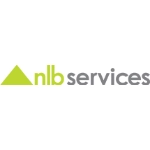© 2025 Next Level Business Services Inc. All Rights Reserved.
Strategies for Improving Your Management Communication Skills
By NLB Services
Effective leadership is all about communicating effectively. While many professionals emphasize the various nitty-gritty of running a thriving business, one can’t deny that the success of a business venture hinges on the presence of a robust communication system within the management. Unparalleled communication skills are a prerequisite to enable persuasion, instill accountability, foster intentional connections, develop and uphold value systems, and provide unwavering motivation and encouragement to the employees. These critical elements form the very foundation of a company’s success, as they underpin effective organizational dynamics and outcomes. In this blog, we will look at the key ideas underpinning managerial communications and provide suggestions for managers to develop and refine their management communication skills.
Understanding Communication Styles
Communication strategies are an integral part of any successful business ensuring effective exchange of information. A robust communication system is paramount to ensure employees receive precise and planned information, resulting in heightened productivity and timely completion of tasks. These strategies foster collaboration, facilitate conflict resolution, stimulate creativity, and encourage innovation. Ultimately, they cultivate a positive organizational culture, strengthen relationships with employees and clients, and drive overall business success.
Effective communication is a cornerstone of managerial success, and skilled managers employ various communication styles as part of their strategic approach. By adapting their communication methods, managers can foster a cohesive and high-performing work environment. Let’s look at managers’ four most common communication styles when leading their teams.
Dominant communication style
The communication style of dominant managers is characterized by directness and assertiveness. They are intrinsically driven to accept challenges and initiate focused action with their adept decision-making to achieve tangible outcomes. With their unwavering willpower, forceful demeanor, and self-assured confidence, they are usually touted as hard taskmasters. Their directness, however, can be viewed as aggressiveness at times, making it critical for them to offset their assertiveness with empathy to foster a positive working environment.
Influential communication style
Managers with influential communication styles have the remarkable ability to inspire and motivate others. They are action-oriented, thrive in collaborative settings, and display a remarkable level of enthusiasm. Given their outgoing nature and exceptional convincing skills, they are usually quick to get support for their projects and ideas. Motivated by social recognition, group activities, and cultivating relationships, they place value on coaching, counseling, and fostering freedom of expression to nurture autonomous relationships.
Steady communication style
Patience, predictability, and consistency are strong pursuits of managers with a steady communication style. They prioritize providing support and collaborating with others to maintain a sense of stability within the organization. They are usually excellent listeners, going the extra mile to ensure everyone’s viewpoints are acknowledged and valued. However, they may occasionally limit themselves with inadept decision-making owing to their fears surrounding change, loss of stability, and the possibility of offending others.
Conscientious communication style
Conscientious managers adopt a meticulous and analytical approach to communication. Their systematic style guarantees clarity and precision in disseminating information. They prioritize data-driven and evidence-based discussions, valuing factual accuracy. Their painstaking attention to detail enables them to deliver high-quality work and solve complex problems. However, they may occasionally restrict their potential through tendencies of being overly self-critical, excessively immersing in analysis, or fixating on perfection.
By skillfully switching between these communication styles, managers can effectively connect with team members, bridge gaps in understanding, and foster a collaborative and productive team dynamic. This adaptability in communication style contributes to a cohesive and high-performing team, enhancing overall team performance and success.
Active Listening
Great leaders possess more than just the ability to inspire their employees through their words; they also have the distinct skill of active and attentive listening. This not only allows them to keenly observe and analyze the attitudes and behaviors of their employees but also empowers them to adapt their communication style swiftly depending on the situation. Active listening entails listening intently, comprehending what is being said, and responding appropriately. It encompasses both verbal and non-verbal cues. Through verbal cues, the listener devotes their complete attention to the speaker, skillfully summarizing and paraphrasing to assure understanding and demonstrating empathy for their viewpoints. Whereas nonverbal cues like nodding, smiling, having steady eye contact, and maintaining an open body posture serve to reinforce engagement and a stronger connection.
Research on leadership indicates that team members are more inclined to comply and exhibit greater responsiveness when they have trust in their leader. By actively listening to their concerns and ideas, leaders demonstrate a genuine sense of respect and consideration, which fosters stronger relationships and builds trust by encouraging open and meaningful conversations. This not only enables managers to improve the efficiency of ongoing tasks but also facilitates collaboration with others on new projects, instilling a culture of cooperation and discipline among team members.
Moreover, active listening plays a vital role in resolving conflicts successfully and enhancing employee satisfaction and retention, which has become crucial in today’s competitive environment, where companies are grappling with talent scarcity. To address this need, we suggest that organizations implement comprehensive training programs aimed at honing the listening skills of their managers. This initiative will pave the way for improved communication, fostering a culture of engagement and ultimately contributing to greater organizational success.
Clarity, Conciseness, and Consistency
Moving on, let’s look at the three C’s of effective communication. It’s vital for managers to exhibit the utmost clarity, conciseness, and consistency when communicating with employees. Ambiguity and long-drawn-out communication can lead to confusion and inefficiency. Since short messages are typically easier to remember and comprehend, managers should focus on keeping their communications brief and to the point, avoiding any unnecessary details and technical terms. Consider the recipient’s background and level of expertise to aid in tailoring the message to their understanding. We advise managers to organize their thoughts and plan managerial communications beforehand, leading to greater clarity and consistency while saving time and mitigating the possibility of misunderstandings or errors. Pre-planned communication confers a considerable advantage to the managers, allowing them to succinctly express expectations from their teams, assign responsibilities, and offer feedback to streamline workflow and enhance productivity.
Written communication skills in management
Effective management mandates the need for strong written communication skills as managers often need to interact through mediums like emails, reports, and memoranda. They may also have to give written feedback or provide project updates. In fact, many professionals prefer written communication over the verbal route to present complex ideas accurately, as it leaves no room for ambiguity or confusion. With conversations being documented people can always refer back to later, saving time and enhancing productivity within the management.
Managers should focus on honing and developing their writing skills for efficient information exchange, improved relationships with both internal and external stakeholders, and facilitating consistent communication across the organization. For any form of written communication, it is essential to start by creating a foundational outline. This outline serves as a roadmap, ensuring they include all pertinent details, avoid unnecessary repetition, and stay focused on the key points. By adhering to this structured approach, they can ensure cohesiveness in their communication, mitigating the possibility of overlooking essential information or straying off course.
Managers should also consider familiarizing themselves with different writing styles, vocabulary, and sentence structures to find what works best for their team. Typically, we advise leaders to construct concise messages with easy-to-understand sentences, allowing the recipients to assimilate the message clearly. Lastly, proofreading the written material thoroughly can avert many last-minute hassles, identifying and rectifying any typos, errors, contradictions, or omissions.
Feedback and Performance Management
Employee feedback should ideally be a combination of outlining expectations, highlighting key achievements, identifying areas of improvement, and strategies to address those shortcomings. Effective communication in performance management is a critical skill that enables continuous improvement, identifies progress areas, and anticipates potential hurdles in reaching targets. Moreover, it fosters stronger relationships between supervisors and employees by creating a supportive environment, boosting employee morale and engagement. The intention of giving feedback to your employees should be based on the premise of providing a supportive communication tool rather than critical – through balancing constructive criticism with positive reinforcement.
By receiving constructive feedback, employees gain a sense of belonging and purpose within the organization, leading to increased engagement with its mission and values. This approach cultivates a culture of continuous growth and empowers employees to achieve their maximum potential. Helping them become aware of their strengths and weaknesses gives them a sense of value in what they do, which is pivotal for employee success.
Continuous Learning and Improvement
Acquiring employee feedback is essential for managers as it enables them to refine their communication skills and overall performance. While much emphasis is laid on constructive feedback directed toward teams, it only becomes effective when it flows in both directions. Just as employees benefit from feedback enriching their pursuit of knowledge and growth, similarly, input from employees to managers confers immense value, enhancing their professional development in the following ways.
- Cultivate reverence by valuing others: It is crucial for managers and leaders to take criticism in their stride, as when they are open and receptive to feedback, employees are likely to hold them in high regard and feel appreciated in their roles. This fosters a sense of camaraderie within the team, cultivating trust in each other’s work and nurturing a positive, performance-driven mindset.
- Encouraging employee engagement: Actively seeking feedback from employees on management creates an environment that encourages employee participation and involvement, initiating honest conversations. The management displays that it appreciates the collaborative contribution of all its members rather than relying exclusively on the viewpoints of higher-ranking individuals.
- Identifying areas for honing leadership abilities: Employee feedback provides an invaluable perspective on a leader’s strengths and areas that warrant improvement. Identifying areas that require refinement and devising strategies to address them can be transformational for their personal and professional growth.
- Uncovering opportunities for the organization’s growth: Employee feedback plays a pivotal role in identifying and capitalizing on opportunities for organizational development, thereby bolstering its overall growth and performance. Through the insights gained from feedback, managers can effectively address challenges and implement strategic changes that drive the team and organization toward success and advancement.
Conclusion
Effective management communication skills are essential for successful leadership and organizational growth. By actively developing your communication skills and implementing the aforementioned strategies, you can create a positive work environment, foster strong relationships, and achieve optimal results. Embrace these techniques to become a proficient communicator and inspire your team to reach new heights of success.
Talent Solutions








